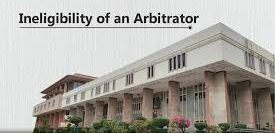Background
The Arbitration and Conciliation Act, 2016, amended by the Arbitration and Conciliation (Amendment) Act, 2015, introduced significant changes concerning the eligibility and appointment of arbitrators. The amendment aimed to reinforce the principles of party autonomy and impartiality of arbitrators by adding Section 12(5) to address arbitrator ineligibility.
Statutory Framework
- Pre-Amendment Position: Sections 12(1) to 12(4) and Section 13 allowed parties to challenge the appointment of an arbitrator based on qualifications or doubts about impartiality. However, the Act lacked specific provisions on the ineligibility of arbitrators.
- Amendment Act: Section 12(5) was added to define circumstances under which an individual is ineligible to act as an arbitrator. This inclusion sought to enhance the clarity and effectiveness of the arbitration process.
Unilateral Appointments
Instances of unilateral appointments where one party has exclusive rights to appoint an arbitrator include:
- Contractual Exclusivity: One party has the sole right to appoint.
- Unauthorized Appointments: The appointed arbitrator designates another arbitrator.
- Non-Consent Appointments: A party appoints an arbitrator without consent, and proceedings commence.
The Supreme Court in the Perkins case established that a person with an interest in the dispute should not be eligible to act as an arbitrator or appoint anyone else.
Conundrum of Ineligibility
Despite the amendments, there is no direct remedy under Section 12(5) for addressing the appointment of an “ineligible” arbitrator. Instead, aggrieved parties may resort to:
- Section 13: Challenge the appointment before the arbitral tribunal.
- Section 11: Petition the court for a fresh appointment.
- Section 14: Seek termination of the mandate of an ineligible arbitrator.
Analysis
Section 13 Inapplicability
- HRD Corporation Case: The Supreme Court indicated that if an arbitrator is ineligible under Section 12(5), Section 13 does not apply since ineligibility fundamentally undermines the arbitrator’s ability to function. Hence, Section 13 cannot be used for challenges based on ineligibility.
Sections 11 and 14 Comparison
- Section 11: Allows for the appointment of a fresh arbitrator and is maintained even if the arbitrator is ineligible. It does not address the termination of an existing arbitrator’s mandate directly.
- Section 14: Pertains to the termination of an arbitrator’s mandate. However, this section assumes that the arbitrator is incapable of performing their functions and mandates substitution. It does not directly address the ineligibility but focuses on the inability to perform.
The Conundrum within the Conundrum
- Section 11 vs. Section 14:
- Section 11 is more about constituting a tribunal rather than terminating an ineligible arbitrator’s mandate.
- Section 14 could imply that the mandate of an ineligible arbitrator should be terminated, but if it involves substituting an arbitrator, the process might become complicated if there are concurrent issues about the arbitrability of the claims.
Conclusion
While the amendments clarified the ineligibility of arbitrators and provided mechanisms for addressing it, the practical application remains complex. The Supreme Court has underscored the inapplicability of Section 13 in the context of ineligibility, and the use of Sections 11 and 14 presents different challenges. Further judicial interpretation and possibly legislative amendments may be required to streamline the resolution of disputes involving ineligible arbitrators, ensuring clarity and efficiency in arbitration proceedings.

